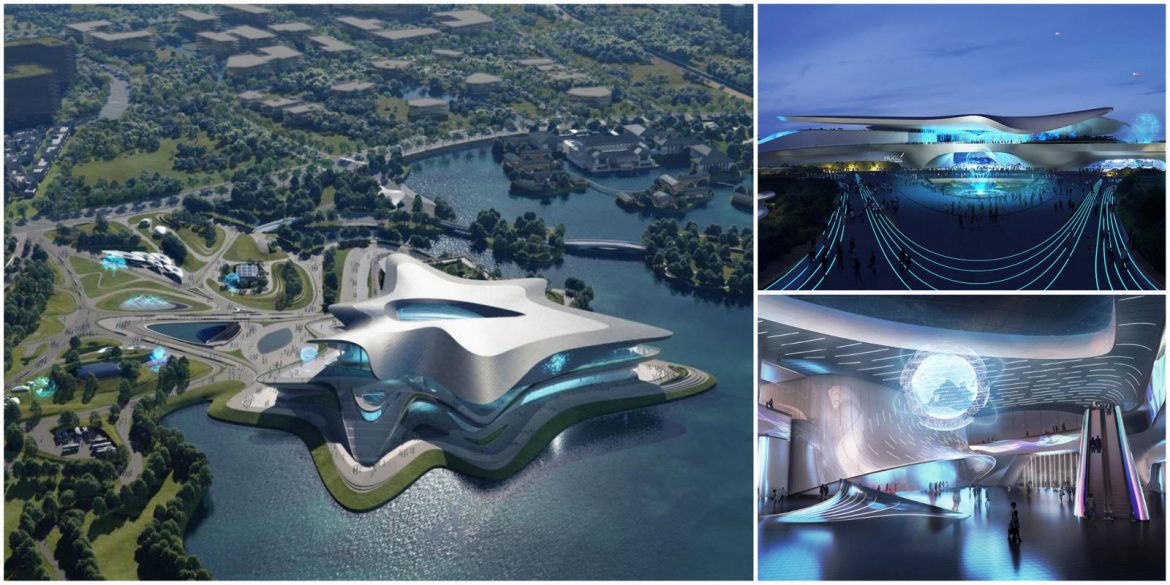China and its bridges may keep the adrenaline junkies occupied, but it is China’s outstanding museums that have the bookworms swooning. The Chengdu Science Fiction Museum by Zaha Hadid Architects is a mecca of not just enlightenment, but it could just as well be a case study in architecture! The fiction museum is taking shape on Jingrong Lake within the Science & Innovation New City of Chengdu’s Pidu District. The incredible mind-bending cultural destination is expected to complete by the end of this year and open its doors with a bang. The venue will host the 81st annual World Science Fiction Convention (Worldcon) and the 2023 Hugo Awards.
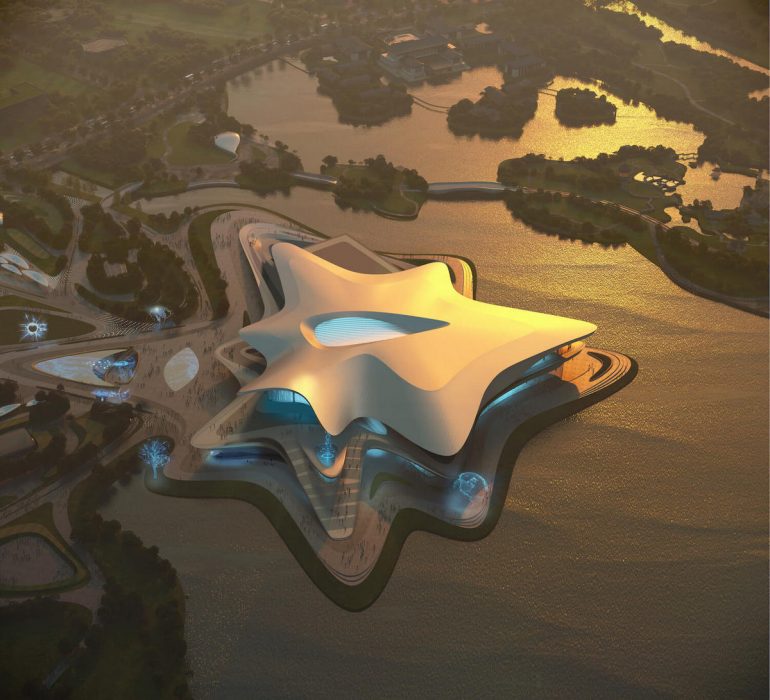
The city of Chengdu is the hub of science fiction writing in China, making it the perfect destination to launch a museum surrounded by man made marvels and natural vistas.
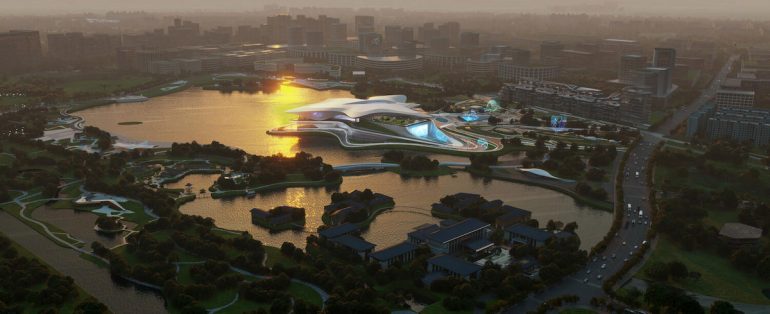
The museum is connected by pedestrian routes fusing the city and the metro station directly into the heart of the building. This creates an exciting play between indoor and outdoor plazas at the multi-level museum.
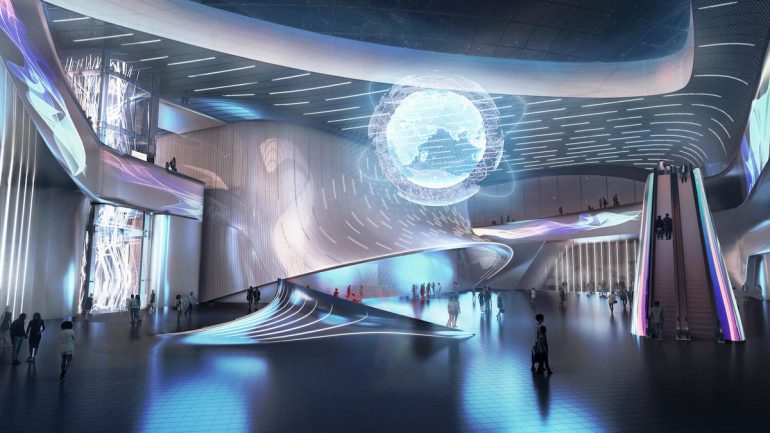
The 59,000 sqm Chengdu Science Fiction Museum will work as an exhibition center, host conferences, events, and a gripping gallery. Visitors will find a theater, a conference hall, and supporting ancillary spaces inside the building. It is advisable to stop for a minute and take in splendid Xiling Mountain views from the imposing sky-lit central atrium.
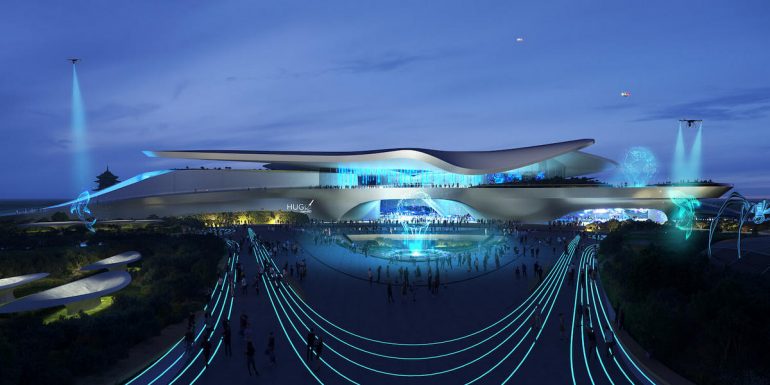
The museum is brought to life using digital model analysis that takes into consideration the composition, site conditions, sun exposure, and structure. The edifice boasts photovoltaics embedded in the canopy to promote sustainability with natural hybrid ventilation. The roof also contributes to the sustainable and efficient nature of the museum.
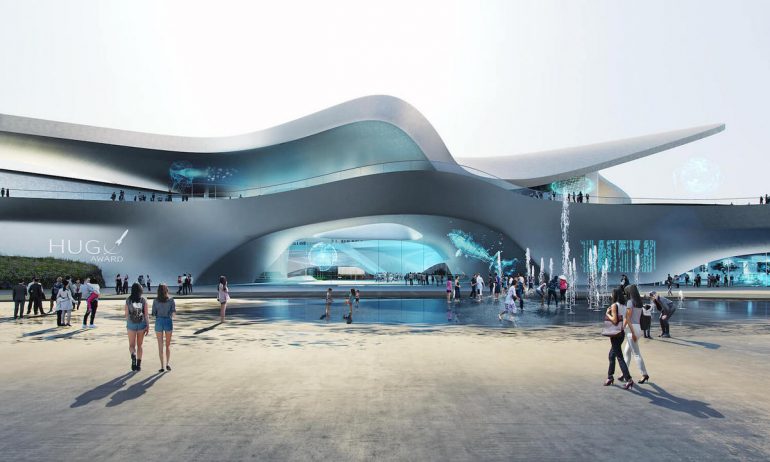
“The flowing forms of its roof radiate from a central point inside, mimicking an expanding nebula with a star at its center – transforming the museum into a “star cloud” that disperses energy fields into its many different zones; Guide visitors through a portal that combines our lived experience with our imagination,” shared Zaha Hadid Architects, per Decor Design.
